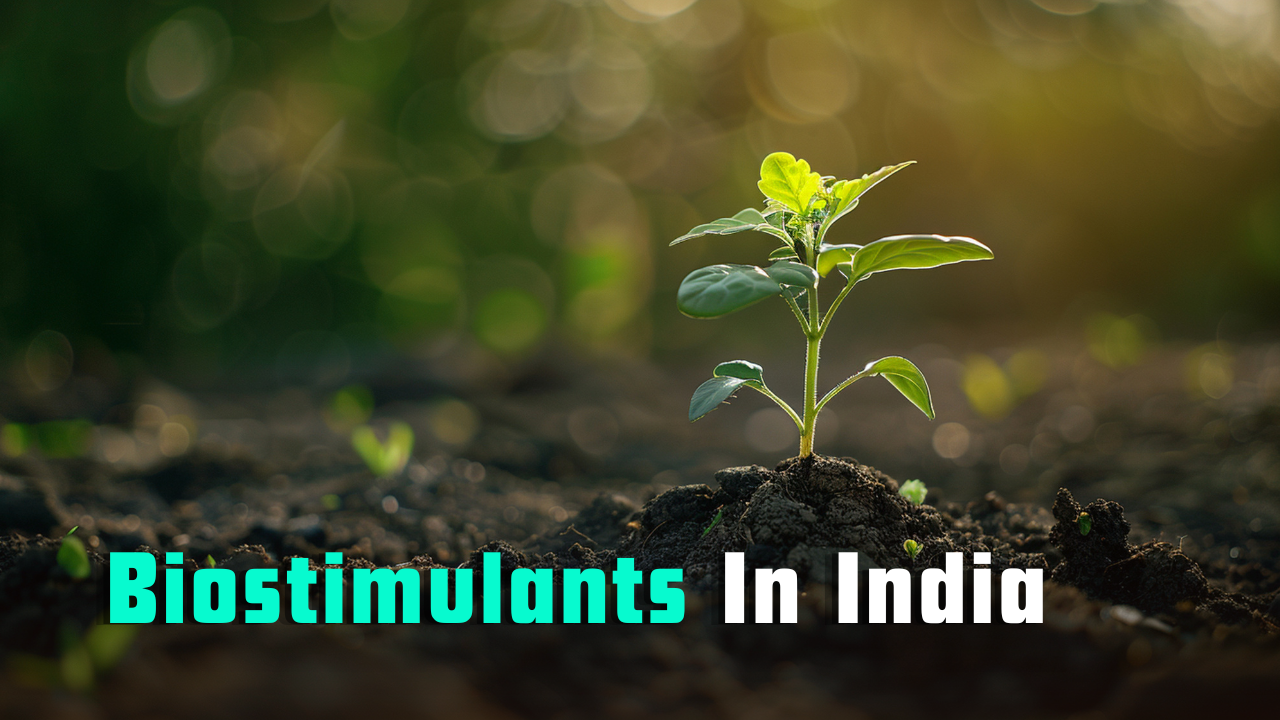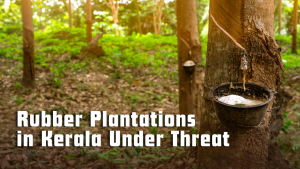Font size:
Print
Biostimulants in India
Biostimulants that aid plant growth, now under the Centre’s scrutiny
Context: Recently, Union Agriculture Minister Shivraj Singh Chouhan directed state governments to halt the forced tagging of biostimulants or nano-fertilisers with conventional subsidised fertilisers like urea and DAP.
More on News
- This came after multiple complaints from farmers and retailers about inefficacy and coercive selling practices.
- Provisional registration expired on June 16, 2025, halting sales of unapproved products.
- Specifications notified for crops like tomato, chilli, cucumber, paddy, cotton, grape, maize, and more.
What Are Biostimulants?
- Biostimulants are substances or microorganisms that, when applied to plants, seeds, or the surrounding soil, stimulate physiological processes, improve nutrient uptake, and enhance crop growth, yield, and stress tolerance. They are often derived from plant waste materials or seaweed extracts.
- As per the Fertiliser (Inorganic, Organic or Mixed) (Control) Order, 1985 (FCO), biostimulants do not include pesticides or plant growth regulators, which fall under separate regulations.
Government Regulation & Policy Framework
- Earlier Scenario: Biostimulants were neither regulated as fertilisers (FCO, 1985) nor as pesticides (Insecticides Act, 1968). They were sold without proper checks, often based on unverified claims.
- 2021 Amendment to FCO: Officially recognised biostimulants as a distinct category, enabling structured registration, field validation, and post-market surveillance.
- Central Biostimulant Committee (CBC): Established to evaluate applications, set specifications, and advise the government.
- 2024 Third Amendment Order:
- Introduced “tracer elements” and added live microorganisms (excluding biofertilisers and biopesticides) to Schedule VI.
- Raised permissible pesticide residue limit from 0.01 ppm to 1 ppm.
- Mandated toxicity (oral, dermal, inhalation, skin, eye) and eco-toxicity (birds, fish, honeybees, earthworms) testing, with exemptions for low-risk categories like seaweed extracts.
- Scientific Validation Requirements: Bio-efficacy trials at three doses, across three agro-ecological zones, under ICAR and state universities.
Market Growth & Economic Impact
- Despite regulatory concerns, India’s biostimulant industry is growing rapidly. According to Fortune Business Insights, the Indian biostimulant market was valued at USD 355.53 million in 2024 and is projected to reach USD 1,135.96 million by 2032, growing at a CAGR of 15.64%.
- India now has more registered biostimulants than the EU, positioning it as a global leader in bio-inputs. Categories include botanical extracts, microbial products, vitamins, and anti-transpirants.
- Startups like String Bio are leveraging the new framework to scale production.
Strategic Importance
- Climate Resilience: Helps crops withstand abiotic stress like drought and salinity.
- Sustainability: Reduces dependence on chemical inputs.
- Export Potential: Regulatory clarity boosts global competitiveness.
Challenges & Controversies
- Unregulated Sales: Over 30,000 products were sold without scientific validation until recently.
- Farmer Complaints: Reports of forced bundling with subsidised fertilisers and questionable efficacy.
- High Compliance Costs: Toxicity testing and field trials are expensive for small manufacturers.
- Market Abuse: Misinformation and misuse due to lack of farmer awareness.
Way Forward
- Stricter enforcement of FCO provisions across all states. Farmer education campaigns on the benefits and limitations of biostimulants.
- Transparent labelling and usage guidelines. Ensure fair competition while encouraging innovative organic solutions.
- Promote research-backed development and collaboration with ICAR and agricultural universities.
Subscribe to our Youtube Channel for more Valuable Content – TheStudyias
Download the App to Subscribe to our Courses – Thestudyias
The Source’s Authority and Ownership of the Article is Claimed By THE STUDY IAS BY MANIKANT SINGH


